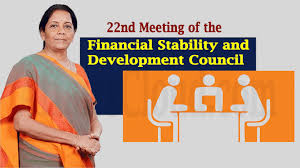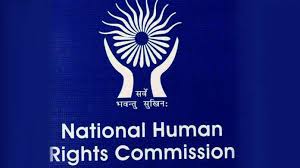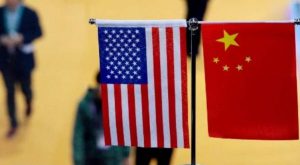Table of Contents
Daily Current Affairs for Government Exams:
Today Current Affairs:29th May 2020 for UPSC IAS exams, State PSC exams, SSC CGL, State SSC, RRB, Railways, Banking Exam & IBPS, etc
Contents:
- Financial Stability and Development Council (FSDC)
- Active pharmaceutical ingredient (API)
- National Human Rights Commission (NHRC)
- U.S. House passes Uighur rights, Bill
- Other important current affairs:
1. Financial Stability and Development Council (FSDC) :

Union Finance Minister chaired the 22nd Meeting of the Financial Stability and Development Council (FSDC) to review the current global and domestic macro-economic situation, financial stability and vulnerabilities issues etc.
Points:
Covid-19 as a Threat to Global Economy:
- The Council has noted that the Covid-19 pandemic poses a serious threat to the stability of the global financial system, as the ultimate impact of the crisis and the timing of recovery remains uncertain.
- The pandemic has thrown the global economy into its worst recession since the Great Depression in the 1930s, and India is no exception.
Projected Domestic Economic Growth:
- Domestic economic growth is expected to contract for the first time in forty years in FY21 (April 2020 to March 2021).
- Crisil, Goldman Sachs and Fitch Ratings have projected the Indian economy to contract 5% during the current financial year.
Announced Measures and its Impact:
- The Council quoted the various short term fiscal measures taken by the government and monetary measures taken by the Reserve Bank of India (RBI) to address the liquidity and capital requirements of the financial institutions to manage the economic scenario due to global pandemic.
- It also reviewed the liquidity and solvency position of the Non-Banking Financial Companies (NBFCs), housing finance companies and micro-finance institutions.
- Moratoriums on loan payments due to pandemic induced lockdowns have put pressure on inflows of these companies while banks have turned resistant to lend them in the wake of possible defaults. NBFCs have also sought a moratorium on their dues to banks.
FSDC
- It was set up in 2010 by the Indian Government as an executive body.
- It replaced the High-Level Coordination Committee on Financial Markets (HLCCFM). The idea to create such a super regulatory body was first mooted by the Raghuram Rajan Committee in 2008.
- FSDC is not a statutory body. No funds are separately allocated to the council for undertaking its activities.
- Its objectives are to strengthen and institutionalize the mechanism for maintaining financial stability and Enhancing inter-regulatory coordination.
- It is chaired by the Union Finance Minister of India. The other 12 members are
2.Active pharmaceutical ingredient (API) :

Export of active pharmaceutical ingredient (API) of paracetamol from the country is all set to resume with the Centre moving it out of the ‘restricted for export’ list.
- About 40% of the paracetamol API manufactured in the country is consumed in the domestic market, while the rest is meant for exports.
- Every medicine is made up of two main ingredients — the chemically active APIs and chemically inactive, excipients, which is a substance that delivers the effect of APIs to one’s system.
- API is a chemical compound that is the most important raw material to produce a finished medicine.
- In medicine, API produces the intended effects to cure the disease. For instance, Paracetamol is the API for Crocin and it is the API paracetamol that gives relief from body ache and fever.
- Fixed-dose combination drugs use multiple APIs, while single-dose drugs like Crocin use just one API.
- Despite being a leading supplier of high-quality medicines to several countries, Indian pharmaceutical industry is highly dependent on China for APIs.
- In 2018-19 fiscal, the government had informed the Lok Sabha that the country’s drug-makers had imported bulk drugs and intermediates worth $ 2.4 billion from China.
- But with a frequent lockdown due to the deadly coronavirus outbreak, supplies of raw materials from China to produce drugs for treating HIV, cancer, epilepsy, malaria, and also commonly-used antibiotics and vitamin pills, are likely to be hit.
3.National Human Rights Commission (NHRC):

The National Human Rights Commission (NHRC) has issued notices to the Union Home Ministry, the Railway Board and the Bihar and Gujarat governments in connection with the reported deaths of some migrant workers on Shramik Special trains and the lack of food and water for the passengers on these trains.
- The government had started Shramik Special trains from 1st May 2020 to ferry migrant workers back to their home States after they were stranded in different parts of the country due the Covid-19 induced lockdown.
- Most of these poor migrants were daily wage workers who lost their work and livelihood as businesses and establishments shut down. In the absence of money and jobs, and bereft of any food, savings, or shelter in large cities, they started moving back to their villages.
- The NHRC took suo motu (on its own) cognisance of media reports about the trains not only starting late, but also taking many more days to reach their destinations.
- Many migrant labourers lost their lives during their journey due to the longer duration and the absence of arrangements for drinking water and food.
- The Commission observed that the contents of the media reports, if true, amount to gross violation of human rights.
- The State has failed to protect the lives of the poor labourers on board the trains.
- The NHRC has issued notices to the Chief Secretaries of Bihar and Gujarat governments, the chairman of the Railway Board and the Union Home Secretary, seeking their reports within four weeks.
- Also, recently, the Supreme Court directed that the State from where workers started their journey and the State where they were headed should pool their travel expenses between them.
- During the train journey, railways would be in charge of providing migrant workers drinking water and meals.
- In the case of bus journeys, the State where they started from had to take care of their food and water.
4.U.S. House passes Uighur rights, Bill:

the United States House of Representatives approved legislation calling for sanctions on Chinese officials responsible for the oppression of Uighur Muslims.
- The bill calls for sanctions against those responsible for the repression of Uighurs and other Muslim groups in China’s Xinjiang province.
- According to the United Nations estimates, more than one million Uighurs Muslims and members of other largely Muslim minority groups have been detained in camps in Xinjiang in a crackdown.
- The bill also calls on USA companies or individuals operating in the Xinjiang region to take steps to ensure their products do not include parts using forced labour of Uighurs.
- Bypassing the bill, the United States Congress has taken a firm step to counter China’s human rights abuses against the Uighurs.
- It has sent a clear message that the Chinese government cannot act with impunity.
- However, China denies the mistreatment in the camps and says the camps provide vocational training. China also refuses to allow independent inspections.
- The bill has now been sent to the White House for President Donald Trump to veto or sign into law.
- This approval of legislation should be observed in the context of recent developments in the US-China relationship which have become increasingly tense.
Uighurs Muslims
- The Uighurs are a predominantly Muslim minority Turkic ethnic group, whose origins can be traced to Central and East Asia.
- The Uighurs are considered to be one of the 55 officially recognized ethnic minority communities in China.
- However, China recognises the community only as a regional minority and rejects that they are an indigenous group.
- Currently, the largest population of the Uighur ethnic community lives in the Xinjiang region of China.
- A significant population of Uighurs also lives in the neighbouring Central Asian countries such as Uzbekistan, Kyrgyzstan and Kazakhstan.
Other important current affairs:
1. Union Ministry of HRD has decided to take forward the Ek Bharat Shreshtha Bharat (EBSB) program by using innovative ways in view of the prevailing conditions of COVID 19.
- To move towards digital mediums for the carrying on the activities under EBSB by each participating Ministry/ Department.
- To organise webinars on Ek Bharat Shreshtha Bharat themes for their wide dissemination.
- To have a common repository for the Ek Bharat Shreshtha Bharat digital resources that can be used by every Ministry. This repository may be hosted on a common portal.
- Ek Bharat Shreshtha Bharat (EBSB) programme was announced by the Prime Minister in 2015 on the 140th birth anniversary of Sardar Vallabhbhai Patel. Subsequently, the initiative was announced in the Union Budget for 2016-17.
- Objective: To promote engagement and thereby understanding amongst the people of different states/UTs to ensure a stronger united India.
- The Ministry of Human Resource Development has been designated Nodal Ministry for coordination of the programme.
2. World Health Organization Director-General announced the creation of the ‘WHO Foundation’ that will enable it to tap new sources of funding, including the general public.
- The WHO Foundation is an independent grant-making foundation that will support WHO efforts to address the most pressing global health challenges by raising new funding from “non-traditional sources”.
- By funding high-impact initiatives and advancing strategies of innovation, effectiveness, and rapid response, it will support the global health ecosystem.
- It is Headquartered in Geneva.
- The foundation is legally independent of the WHO.
- It is established under the laws of Switzerland.
3. President Trump has signed an executive order targeting legal protections that keep people from suing social media websites.
- The order would make it easier for federal regulators to argue that the companies are “suppressing free speech when they move to suspend users or delete posts.”
- The move follows his anger at Twitter over its decision this week to append fact-check labels to several of his tweets about mail-in voting, along with links to accurate information on the topic.
- Twitter’s move to tag the President’s tweets comes after years of being accused of ignoring the President’s violation of platform rules with his daily tweets.
4.Interahamwe militia:
- It is a far-right Hutu paramilitary organization active in the Democratic Republic of the Congo and Uganda.
- Formed around 1990 as the youth wing of the National Republican Movement for Democracy and Development (MRND according to its French name), the then-ruling party of Rwanda.
- The Interahamwe were the main perpetrators of the Rwandan genocide, during which an estimated 500,000 to 1,000,000 Tutsi, Twa, and moderate Hutus were killed from April to July 1994, and the term “Interahamwe” was widened to mean any civilian bands killing Tutsi.
5. A novel fungus strain Fusarium wilt TR4 has started infecting the Banana plantations in India.
- It has been described as the equivalent of Covid-19 in Bananas. Similar to Covid-19, there is no treatment yet for the new fungal disease.
- In the midst of the coronavirus disease outbreak, Fusarium wilt TR4, has devastated plantations across the globe.
- Ecuador, the largest exporter of Banana is currently the epicentre.
- Banana is the world’s most globally exported fruit and the disease is breaching borders through international trade.
- The spreading disease has impacted the $26 billion global banana trade.
- The strain, Tropical Race 4 (TR4):
- It was first identified in Taiwan and has moved from Asia to the Middle East and Africa, reaching as far as Latin America.
- It cripples plantations by first attacking the leaves, which turn yellow from their trailing edges before wilting away.
- According to the Food and Agriculture Organization of the United Nations, TR4 is one of the “the most destructive of all plant diseases”.
6. The Central Institute of Plastics Engineering & Technology (CIPET) has been renamed as the Central Institute of Petrochemicals Engineering & Technology (CIPET).
- The changed name has been registered under the Tamil Nadu Societies Registration Act 1975.
CIPET is a premier national institution under the Ministry of Chemicals and Fertilizers. - It was established in 1968 by the Government of India with the assistance of the United Nations Development Programme (UNDP) at Chennai.
- The primary objective of CIPET has been contributing to the growth of the plastics industry through a combined program of education and research.




